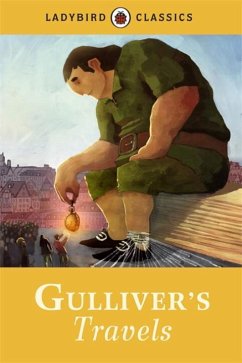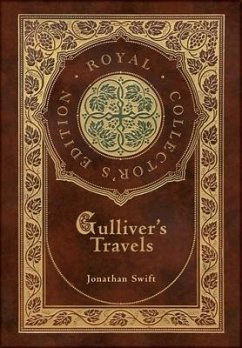
Gulliver's Travels
Versandkostenfrei!
Versandfertig in 2-4 Wochen
25,99 €
inkl. MwSt.

PAYBACK Punkte
13 °P sammeln!
Jonathan Swift's Gulliver's Travels, first published in 1726 was universally read from the cabinet council to the nursery. It was, however, the children who laid claim to the book. In Part One Lemuel Gulliver is washed ashore after a shipwreck and finds himself a prisoner of a race of tiny people. After escaping from the land of Lilliput and returning to England, Gulliver sets sail again. This time his ship is blown off course by storms and while a party of sailors goes ashore in search of fresh water, our hero is abandoned and again captured...this time by a race of giants! We now know that m...
Jonathan Swift's Gulliver's Travels, first published in 1726 was universally read from the cabinet council to the nursery. It was, however, the children who laid claim to the book. In Part One Lemuel Gulliver is washed ashore after a shipwreck and finds himself a prisoner of a race of tiny people. After escaping from the land of Lilliput and returning to England, Gulliver sets sail again. This time his ship is blown off course by storms and while a party of sailors goes ashore in search of fresh water, our hero is abandoned and again captured...this time by a race of giants! We now know that millions of children and adults have read and been thrilled by the perils and adventures of Gulliver's Travels. Plunge into one of the most exciting adventure stories ever written...Gulliver's Travels by the Anglo-Irish writer and clergyman, Jonathan Swift.
Dieser Artikel kann nur an eine deutsche Lieferadresse ausgeliefert werden.












